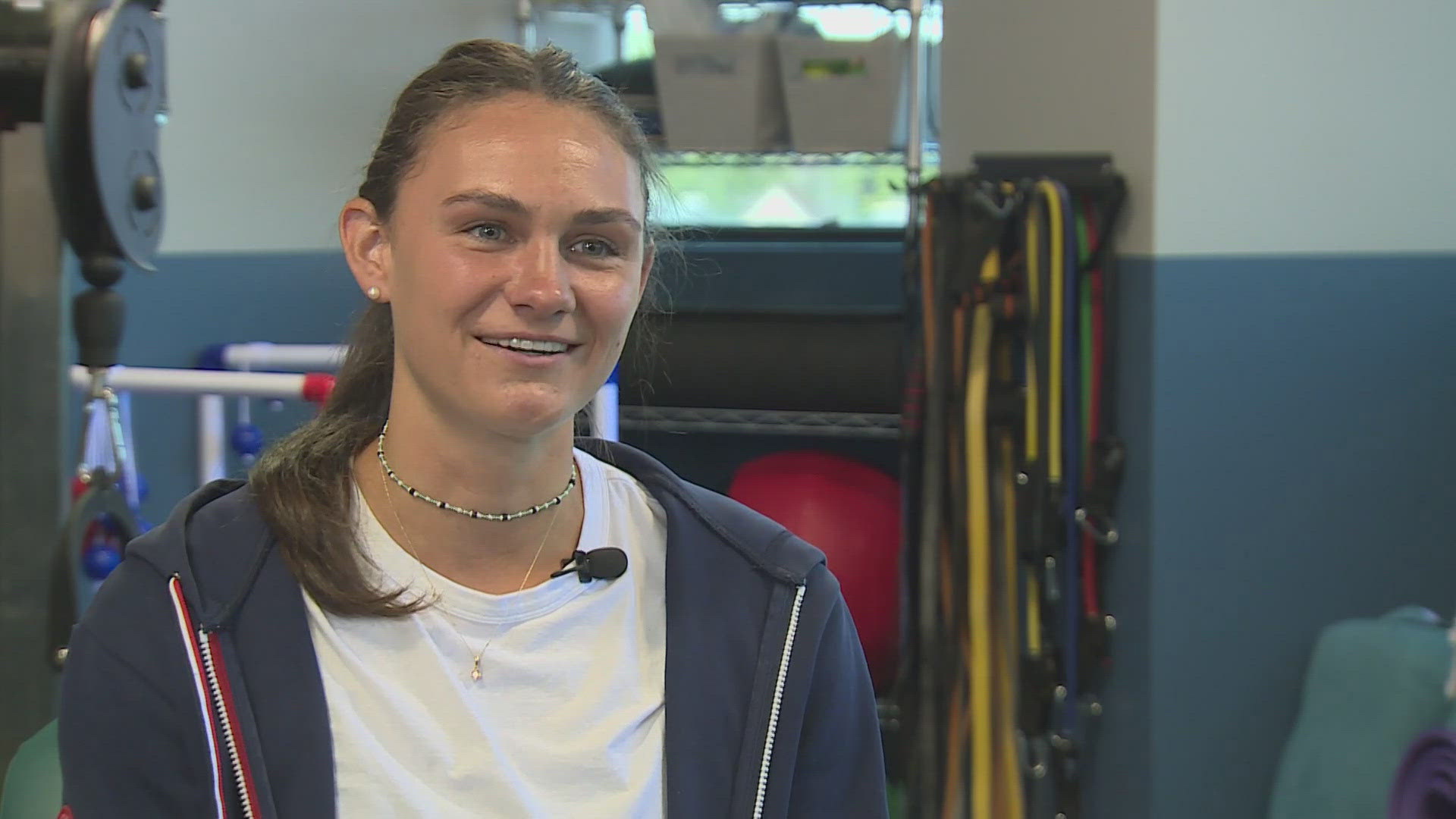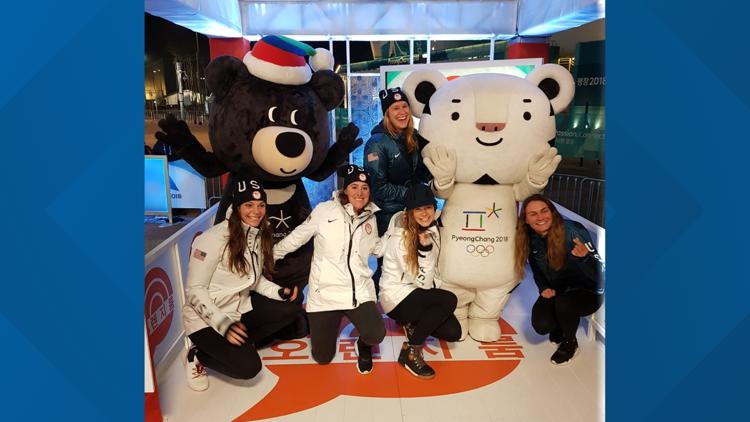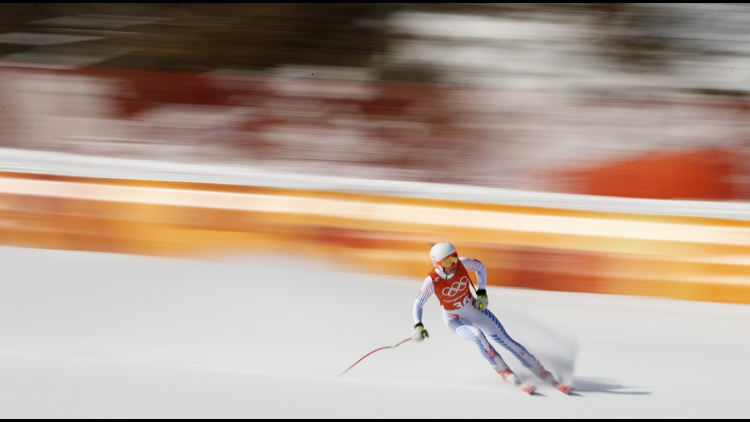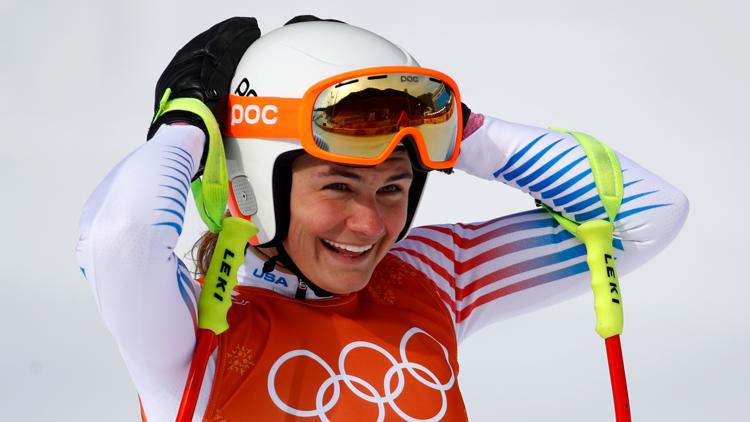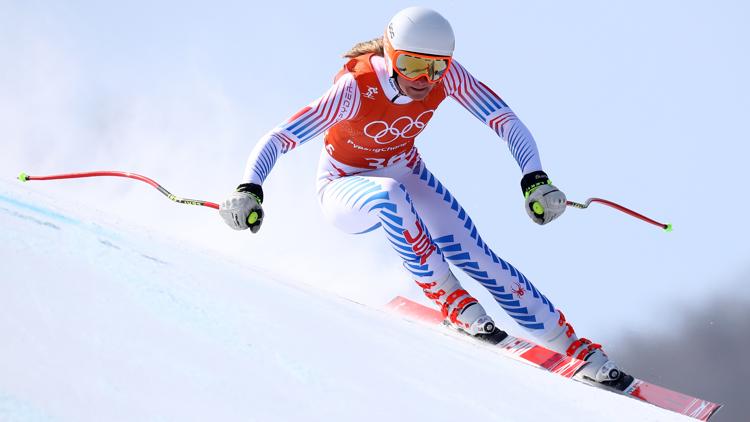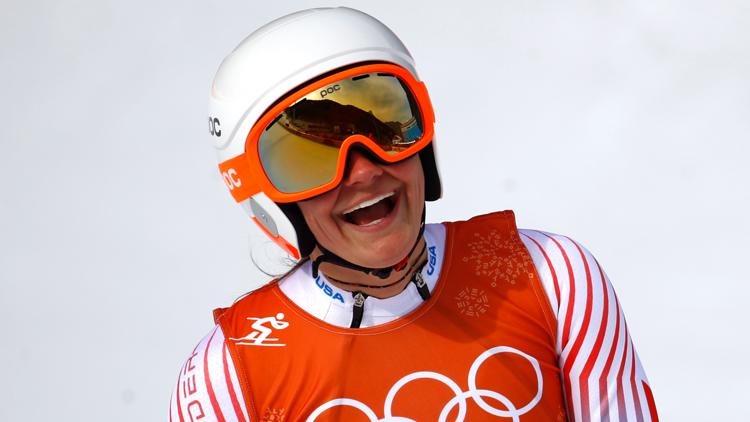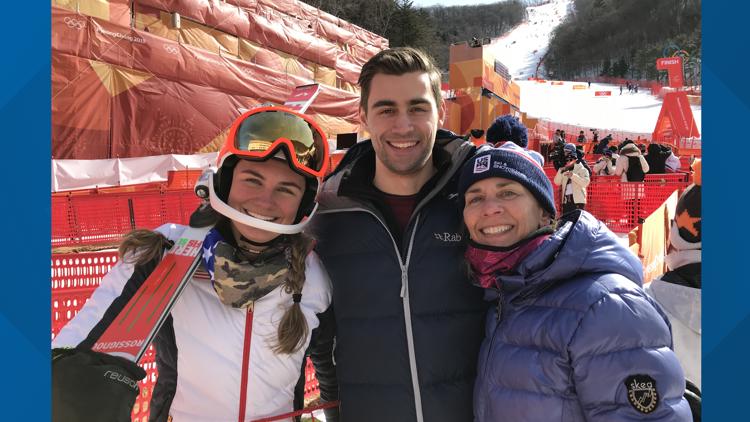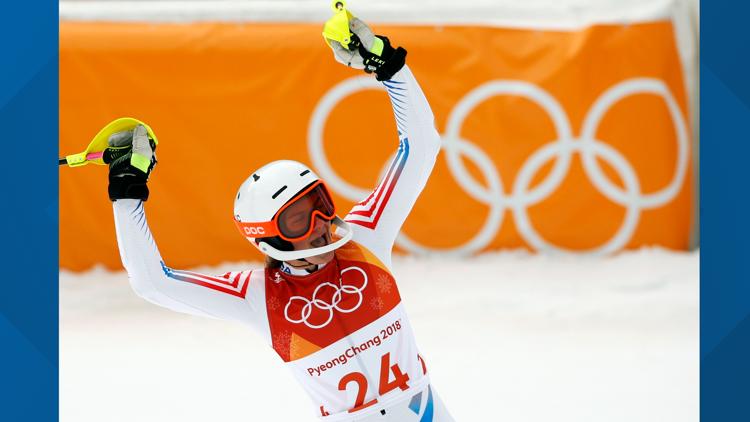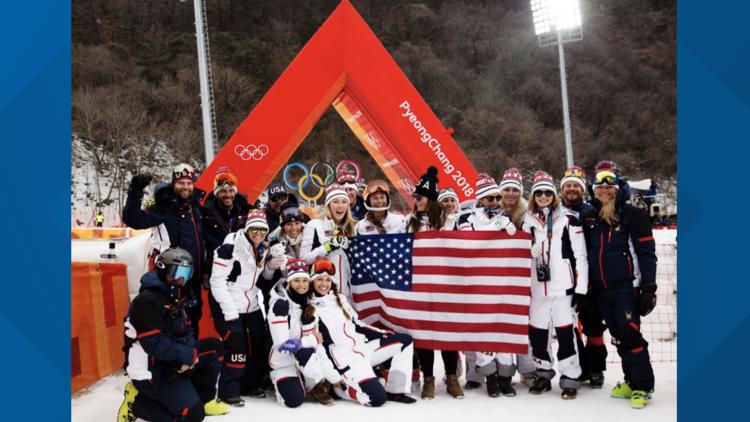DENVER — It's the 2018 Winter Games, alpine-combined event. Alice Merryweather is racing down the course.
It's the moment she's dreamed about her whole life.
"I crossed the finish line. I see a green light, which means you're in the lead," she said. "I have my family. I can see them in the stands right in front of me."
Alice Merryweather at the 2018 PyeongChang Olympic Winter Games
Though her advantage was short-lived, it's a highlight she'll cherish forever.
"That rush of elation and excitement just, to me, that was the entire reason that I ski race," Merryweather said.
But no one prepared her for life after the Olympics.
"I saw these students around me who had a life plan," she said. "They knew what they wanted to do. They knew what they were majoring in, and I was just the skier."
That spring is when Merryweather said she turned inward, during her first term at Dartmouth.

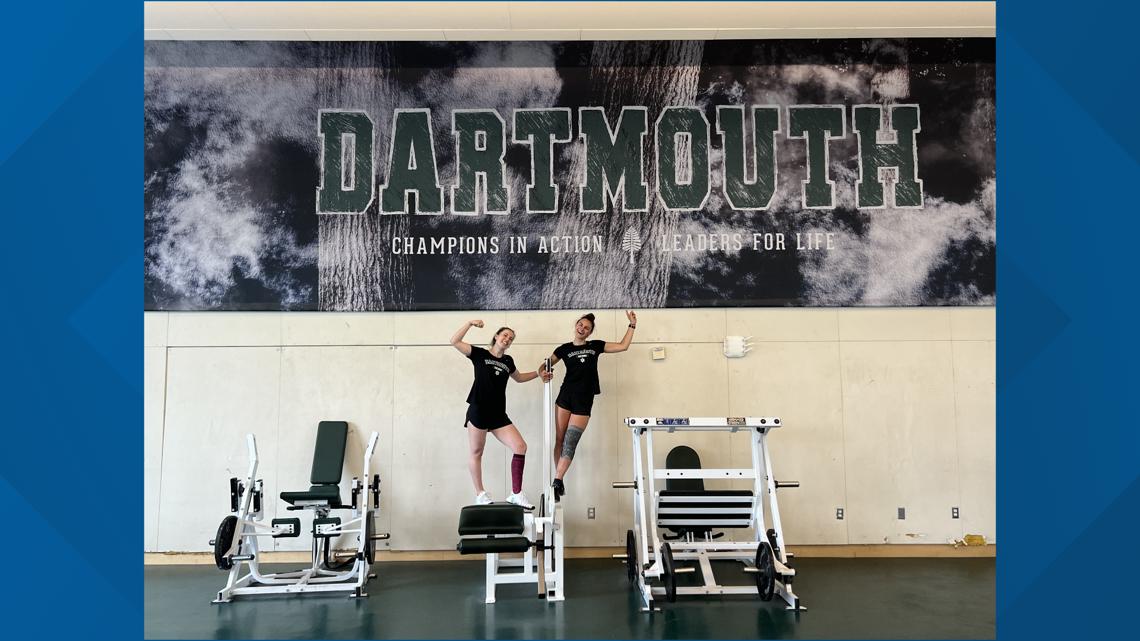
"I think the kind of come down from the Olympics really left me in this puddle of really not understanding who I was outside of my sport," she said.
She said self-loathing was building under the surface.
"I wasn't winning World Cups by any means. I wasn't a medal contender when I had gone to the Olympics, and so I needed to get better at my sport and I needed to just be a better human because clearly I was falling behind, and that's how I felt about myself at that point," Merryweather said.
Once COVID hit in the spring of 2020, the isolation and loss of control that came with the pandemic was overwhelming.
"That was kind of the last little thing that fully flipped that switch and, for me, activated my eating disorder," she said. "It was like, 'Oh, now I finally have this time [and] I’m stuck at home. I can work on making myself the perfect athlete, the perfect person,' and that manifested in a lot of really unhealthy ways."
Athletes have a three to five times higher risk of developing eating disorders such as anorexia, bulimia nervosa and binge eating than the general population, according to Dr. Mark Allen, a sports psychiatrist at Athlete EDGE in Denver.
"If you look at weight-based sports and aesthetic or appearance-based sports, the risk is even higher," he said. "In fact, the majority of female athletes in those two categories actually have an eating disorder."
He said Athlete EDGE has one of two programs in the country that specifically treats eating disorders for athletes. Allen said they regularly take referrals from D1 athletes, Olympians and professional athletes.
"I feel like they’ve been overlooked. They’re underreporting what eating disorders they actually have or what kind of symptoms they deal with," he said. "The problem with sports is that [for] forever, we’ve been told to power through our injuries and just, 'Toughen up, kid,' versus, 'What if the person’s really struggling?'"
The Athlete EDGE team has a medical staff, nutritionists, therapy and performance coaches to help with the athlete identity, as well as strength and conditioning coaches to get them back to their sport in a healthy way.
Allen said if you're noticing someone's food range is starting to narrow, they're losing weight, hiding food, missing meals, or their performance is struggling for an unexplained reason, you may want to gently nudge them to get medically screened.
"My advice to anyone out there that has someone come up to them and say, 'Hey I'm worried about you,' is listen to that," Merryweather said. “With Alpine skiing being a gravity sport, it had never crossed my mind that I could deal with an eating disorder. It was wild, and then suddenly it was happening and it was too late for me to be able to turn it back myself."
She said her boyfriend, Sam, noticed something was off and was concerned about some changes he'd noticed about her behavior.

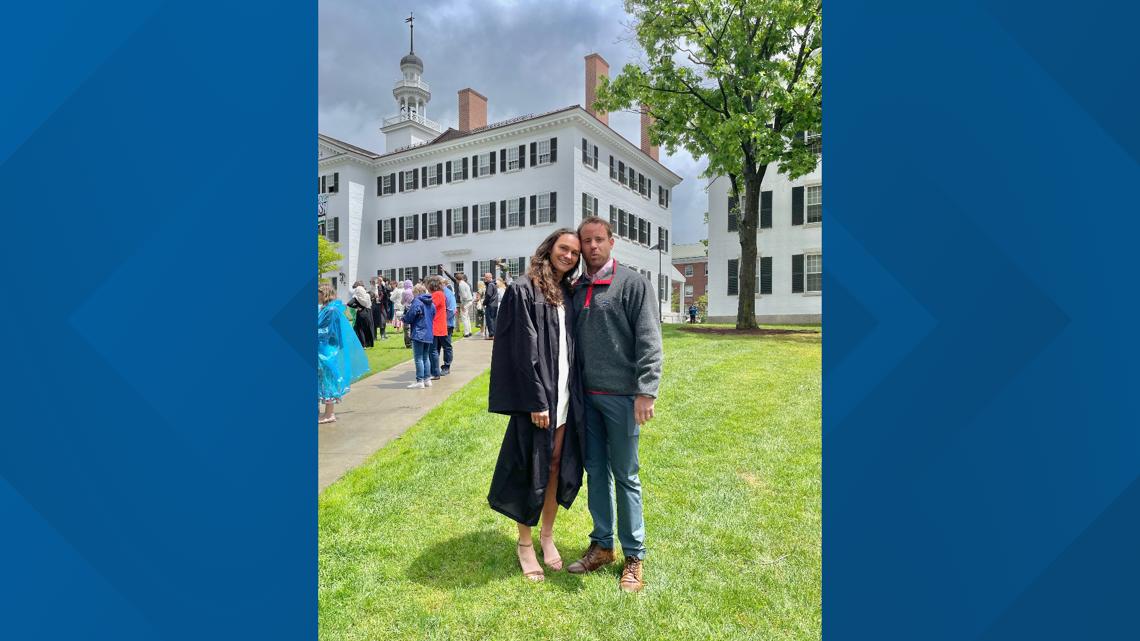
"I kind of laughed at him. I was like, 'There's no way. I've just been eating healthier.' Literally, that's how I responded because I was so uncomfortable with the idea that something could actually be wrong," Merryweather said.
The Olympian was resistant to get help, even though alarm bells were going off in the back of her mind.
"With the rise of social media, too, you see this competing idea of what you should look like," she said. "There's this athlete body and being strong and being powerful and fueling yourself, and then there's the social media body and bikini pictures, things like that. You see stick-thin women."
Months later, Merryweather went to treatment at Athlete EDGE.
"I just was not myself for a chunk of my life and this program returned me to all of those things," she said.
While you're watching sports, Merryweather and Allen said, don't make comments about how the athletes look.
"That messaging can be internalized by young people in thinking they have to reach this ridiculous standard and then they might start to feel bad about themselves," Allen said.
"I am always very mindful now and try to rein myself in when I start comparing my own body, because it just never leads anywhere good," Merryweather said.
Newly retired from professional skiing, she now looks forward to what's ahead.
"I'm definitely going to keep skiing," she said with a smile. "The plan is to actually take this year to ski for fun."

